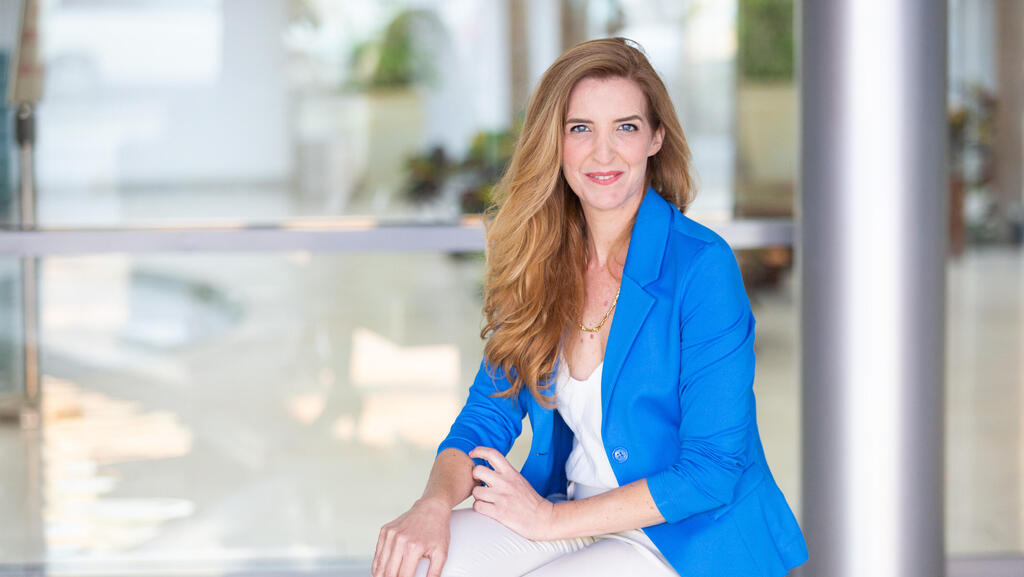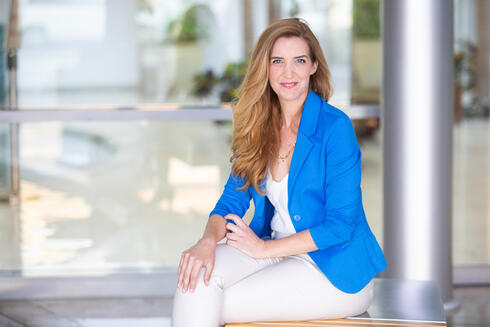
She-Inspires
“You can't break glass ceilings by sitting on a beach in Seychelles. There is a price to success”
Maya Schwartz, CEO of the Israeli High-Tech Association, has had her ups and downs, including being called a whore by an investor while fundraising, but she never gave up. She adapted to every situation and she has proven that with the right mindset you can overcome any obstacle
Maya Schwartz, CEO of the Israeli High-Tech Association, has not had it easy. She grew up in an underprivileged home in the Golan heights with no heating in the winter or food in the refrigerator. That hasn't stopped her from founding a number of startups during her career.
In 2018, Schwartz established PITCH, a co-working space in Yokneam. Issues with receiving a Certificate of Occupancy for the space meant it opened a year-and-a-half later than planned. “It was crazy. I didn't have a salary. At this point I was divorced, I needed food for my kids and so I needed to get creative. I met with the Israel Innovation Authority and became a tech expert there.”
PITCH opened in July 2019 and had an amazing six months, until Covid hit. “At this point I decided to start over. When life hits you hard you can go high or you can go low. I chose the high road and moved to Caesarea and began looking for new opportunities.” That is when she received an offer to become the CEO of the High-Tech Association.
The High-Tech Association represents companies in the high-tech sector in several ways, including acting as a liaison between the industry and the government. “We offer lobbying services, and collaboration opportunities for companies from abroad. Finally, if companies are in need of experts we offer our assistance with micro level issues such as Certificates of Occupancy, VAT, etc.”
Schwartz, a mother of two, encountered many obstacles throughout her life. Upon entering her army service, Schwartz suffered serious injuries after being involved in a car accident with her then boyfriend. “My left leg was crushed, I had to undergo therapy for eight months. They said I won't be able to walk on my leg again but I remember that when the doctor came to tell me the news I said ‘if you don't want to walk that's fine, but I will walk again’”. And walk again she did - she even rides her bike daily and competed in the Epic Israel mountain bike competition.
Schwartz began working at the age of 12 and later studied mechanical engineering. In parallel to her studies she worked for a living and there she experienced the dark side of the industry. “I had a mentor for a project I was working on for over a year. It was very innovative and really upgraded the company. At the end of the project I was requested to present our work. I created a presentation for the company executives showcasing how we can implement the innovation. I was young and super nervous, I couldn't breathe and one second before we went into the meeting my mentor asked if I wanted him to present. I, of course, said yes and he proceeded to present the project as if he was the one that did all the work. That was my first life lesson in business. Every step of the way, if you let fear take over you will lose. That was the first and last time I let my fear win.”
CTech's She-Inspires series follows the stories of various female leaders in Israel. The interviewees hail from various sectors: some work at high level positions in large organizations, some are founders, and some are key players in industries aimed at changing the world for the better. The goal is to learn where they came from, where they are going and how they are bringing inspiration to an entire sector making its way towards a glass ceiling just waiting to burst.
Schwartz has founded a number of startups during her career. Her first, in 2003, was focused on building an IoT system for gas companies. She established the startup and began looking for investors. That is where she experienced an even darker side of the industry. “On one occasion I was called a whore. I was looking to fundraise $2 million and a certain angel investor said he would like to invest and leave me with only 5% of my company. I asked him why and he replied ‘let's be honest, you are just like a whore, I will offer you money and you will take it’. Obviously, I told him I would rather close my startup than work with him.”
Schwartz succeeded in partnering with Paz, one of Israel’s leading energy corporations. However, when the Second Lebanon war began she struggled to raise capital. “I was pregnant at the time and I also understood the solution was too early for the market, it was not ready for IoT systems and so I needed to close my startup.”
Schwartz felt that she also needed business experience and so when an offer came to work as the VP of business development for Daroma-Tzafona, a non-profit looking to bring socioeconomic change to the periphery, she was excited to accept. “I felt like I had the opportunity to add an additional tool to my toolbox. When I started working there were 30 manufacturers and, after nine years, we had 550 manufacturers. It was amazing and I learned business development the best way possible.”
Related articles:
When asked what her main tips are for women starting out, Schwartz replied: “I believe that dealing with crises is a muscle, and you need to train it. If the only crisis you encountered in life was Covid you may think it's the end of the world. However, if you have had to face many challenges and you know tomorrow is another day you will grow strong.
“Also, surround yourself with people that lift you up. If someone makes me feel bad about myself then they don't need to be in my life. Sometimes even our families can pull us down. Don't completely disconnect from your family but look around you. If you have a goal then constantly check if you are on the path toward that goal. You can't break glass ceilings by sitting on a beach in Seychelles. There is a price to success.”
